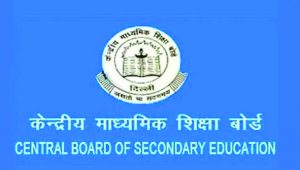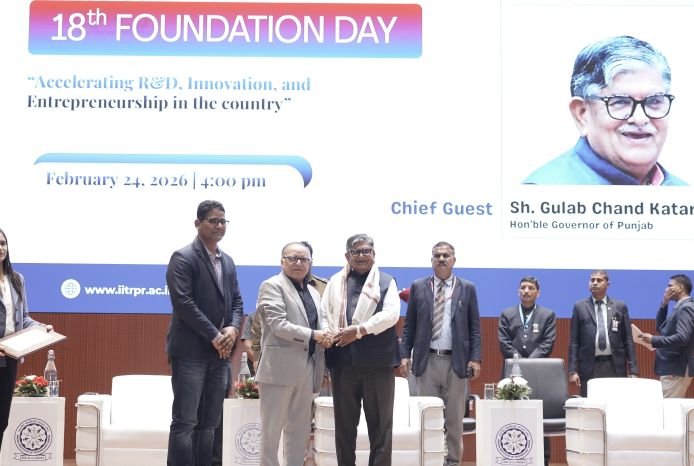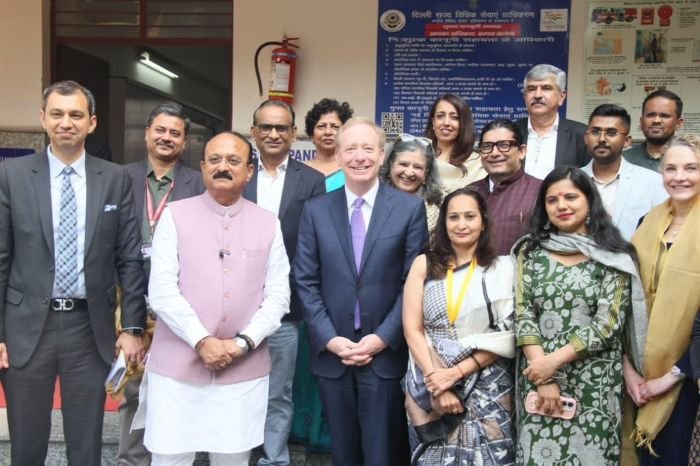
CBSE on July 5 finally came up with an assessment solution in the wake of Covid pandemic after it drew a lot of flak for having overlooked an alternative strategy in 2020-21 session. A notification has now been sent to all concerned with an assumption that this year’s session may also get impacted by pandemic and therefore a plan has been worked out,
. As per the notification, Board exams for Class 10 and 12 students this year will be held in two parts. Continuous evaluation throughout the year, creation of a ‘student profile’ with assessment details of each student for credibility are some other key highlights.
The 2021-22 academic year has been divided into two terms with 50% of the syllabus to be covered in each term, with board exams to be held at the end of each term. “The syllabus for the Board examination 2021-22 will be rationalized similar to that of the last academic session (30%),” said the notification. In 2021-22, the board will rationalize (reduce) the syllabus, hold board examinations twice during the year in different formats, and ensure continuous recording of internal assessment scores in order to have a variety of options to calculate a final score at the end of the year.
The first term exam will be held on a flexible schedule between November-December 2021 with a flexible schedule, with a window period of 4-8 weeks for schools situated in different parts of the country. It will be a 90 minute paper with multiple choice questions only, likely to be conducted in schools with the supervision of external superintendents.
The second term exam will be held in March-April 2022 in examination centres, and is likely to be a 2-hour exam with various question formats. In case the pandemic situation is not conducive for such a long, descriptive exam to be held, the second term exam will also be conducted with a multiple choice question format.
The CBSE will issue guidelines to make internal assessments, practicals and project work more credible and valid to ensure fair distribution of marks. Schools must create a student profile for all assessment undertaken over the year and retain the evidence in digital format, with marks uploaded onto CBSE’s IT platform.
Reactions:
Sangeeta Hajela, Principal, DPS Indirapuram: “The CBSE circular dated July 5 , addresses the important issue of assessment methodology in view of the circumstances necessitated by the pandemic situation. In case this year’s situation repeats itself at the time of conduct of the year-end examinations, there is a clear cut plan, well known to all stakeholders , circulated in advance . The circular mentions certain key , unprecedented changes ; the first being the division of the syllabus, duly rationalised , in two terms , and the term-end examinations being conducted by CBSE , in a particular window in the months of November and December. So the dependence on only ONE examination for computing the results, has been minimised, ensuring the credibility of the Board’s result .
A well- thought out move, it has provided for the unpredictability of the ‘waves’ and the last minute cancellation of examinations ,changes and hurried decision-making . It is a complete plan, mapping what would be done in various situations arising out of conditions prevalent at that time , hitherto unforeseen. The strengthening of the internal assessments, the project work, the uploading of marks of the internal assessments is one more laudable move . It will surely encourage children to study throughout the year and not leave serious study for the final examinations. The digital profile maintenance of each child , though challenging at the grass root level , is also a more holistic tool of evaluation.
This first ever flexible management of examinations is surely a welcome move amongst the academic community . We are optimistic this will usher in a new era of examination-reforms in our country and open another door for all times to come .”
Pallavi Upadhyaya, Principal, DPS RNE Ghaziabad: “The new assessment policy has addressed all the permutations and combinations of situations and has shown the schools the best way to conduct the assessments in a fair manner whatever the prevailing conditions be. The conduct of two board exams with 50 percent of the reduced syllabus is quite brilliant and will definitely ensure a more reliable result.
This being said, what concerns me most is the so-called competency based question paper. The competency based questions we have come across in some subjects had questions that had parallels drawn to it. Most of these questions are confusing even for children studying in urban areas and one can imagine how a child from a rural area would fare. Their answers would be based on pure guess work. So what competency is being tested here? There should be numerous question paper samples provided to the students to ready them for the exam. I feel that pandemic is not the time to conduct such experiments on them. Many of these students are traumatised due to the deaths of their close relatives and also due to their own weak constitution. They have become quite listless and inattentive in the virtual classroom as they are no longer able to do any vigorous physical activities or sports.
Even if the pandemic lets up, most parents are unwilling to send their children to school as they fear exposure. So, while the assessment pattern proposed is a good one, the CBSE needs to empower both the teachers and the students to face the new question pattern. Also the rationalised syllabus should be shared immediately so that the teachers do not waste their time teaching the deleted portions.”
Anshu Mittal, Principal, MRG School, Rohini: “The new assessment scheme shared by CBSE came against the backdrop of COVID-19 pandemic which forced the cancellation of board exams of some subjects last year and complete cancellation of board exams this year shows immense deliberations and is completely fair to the students who study with focus consistently throughout the year. The internal assessments based assignments, projects and practicals which include critical thinking and collaborative work will really be appreciated by all the stakeholders teachers, parents and students. It will also encourage and improve students attendance participation in the school activities thereby enhancing their skills and competencies in Scholastic and Co-scholastic domains .
Introducing the semester system is a beautiful thought, however mapping the interconnectivity of concepts and topics now in the mid-session of classes X and XII where almost half of the syllabus has been already covered by the teachers is worrisome. The syllabus for the assessment scheduled to be in the month of November and December, should have been shared with the schools in time.”
Chandrabhanu Pattajoshi, Founder, Goseeko: “This is a welcome move by CBSE Board as it is an inclusive approach towards projects, assessments which are critical to education systems. The Covid-19 pandemic has given us all the opportunity to bring about a positive shift in the processes where changes were needed since a long time. The division of academic session into two terms with 50 per cent syllabus in each term is a good approach as it is designed in a way for it to be more modular and less archaic wherein we will also see effectiveness of pedagogy in the way it is assessed. This will also help students to learn seriously throughout the year rather than have a fragmented approach wherein they only focus during exams. This change in approach at the school level will definitely bring in more changes in the future of higher education as well.”
Naman Jain, Education Policy Expert and Director, Silverline Prestige School, Ghaziabad: “Assessment plays an important role in the process of learning and motivation. Nowadays, an increasing sense of competitiveness has invaded young minds and we have forced them into this so-called war to outperform others. Instead of putting pressure on the education system, we need to look at the broader picture creating better human beings and lifelong learners. CBSE’s new assessment system is a reformist step forward in the direction of reducing academic burden and nurturing innovation in young minds. We must look at the pandemic as a positive event which is bringing in an ocean of reforms in the education system. The current generation of the covid era is more resilient and is well prepared to face the adversities of the future. The pandemic has undoubtedly become a nurturing ground for Hon’ble PM’s vision to strengthen efforts in transforming the education sector and improve the quality of learning. Now the onus is on schools to implement the policy in the most effective manner and further support Indian education system in creating Sania Nehwal’s and Steve Jobs of the world.”









